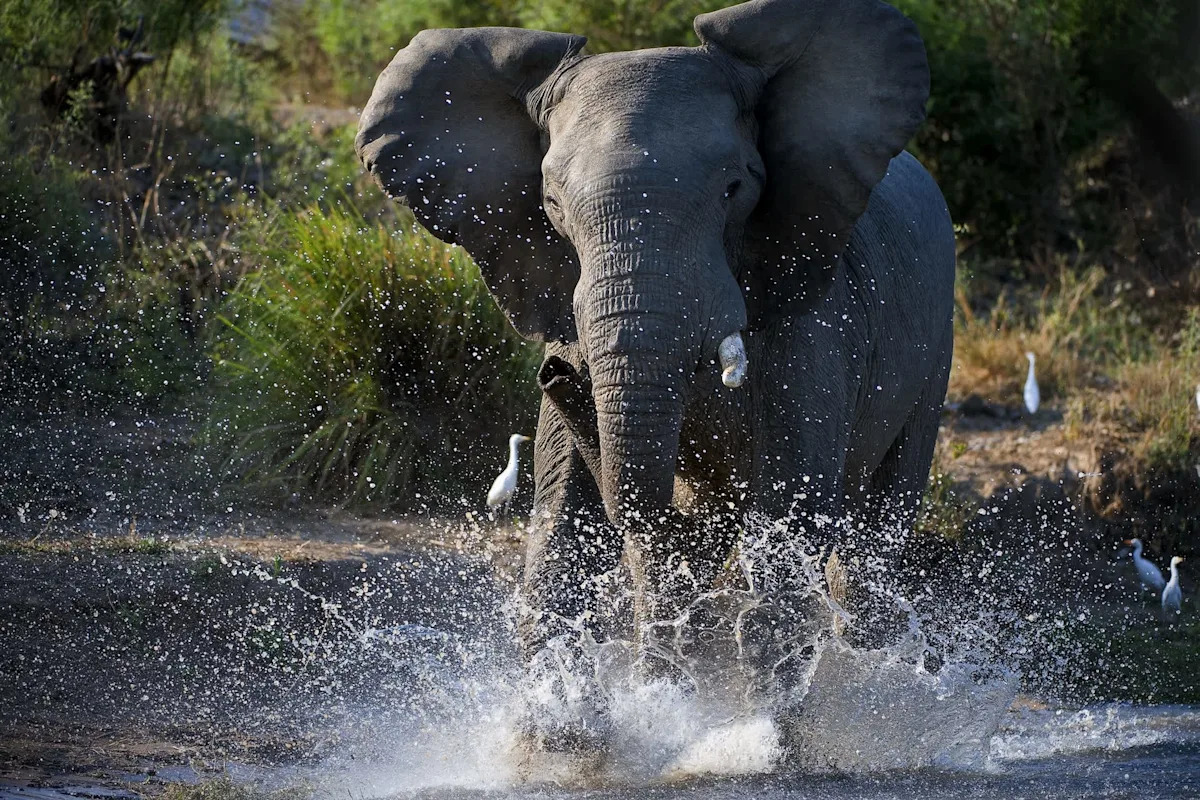A terrifying wildlife encounter in Botswana’s Okavango Delta is making waves online after video footage showed a female elephant flipping two tourist canoes and trampling one woman into crocodile-infested waters. The disastrous incident comes amid growing controversy over safari tourism and rising concerns about the ethics of close-up wildlife encounters.
In the now-widely circulated footage, the elephant charges a cluster of traditional wooden canoes called mokoros, full of British and American tourists.
“The elephant, which rangers believe was protecting her young, charged at safari-goers — then another knocked people into crocodile-filled waters,” reported The Times. The video shows the moment the elephant strikes, sending tourists and their gear into the water, then returning to trample one woman who had been left wading alone.
“It was protecting its young, and it seems the guides misjudged how close they could take the tourists safely and made a potentially fatal mistake. They had a very lucky escape indeed because all four could just have easily been killed,” said one former South African ranger after reviewing the scene.
The terrifying footage shows the elephant charging rapidly at the tourists, exhibiting the dangers of that moment of escalation, and the raw power of these wild animals when they feel threatened.
The incident occurred outside the protected wildlife zone, in an area popular for budget tours guided by local polers. While mokoro safaris are marketed as a serene, eco-friendly way to explore the delta’s wildlife, this incident and others like it are raising questions. “In the past century the population of Africa has increased from 140 million to 1.4 billion, putting immense pressure on wildlife habitats,” wrote Chris Haslam, the chief travel writer for The Times.
“The lure of the selfie and the desire for social-media recognition often seems stronger than the instinct for self-preservation,” Haslam added.
According to former Delta safari operator Kevin Leo-Smith, having multiple canoes may have been a critical mistake. “A single boat might have kept that elephant relaxed,” he said. “Once the problem starts, it quickly becomes chaos.”
This time, all tourists survived. However, that is sadly not always the case. In July 2025, two women died from being trampled by an elephant during a guided walking tour. Even when no humans are seriously injured, the stakes for the animals are high. Elephants that injure tourists — even when provoked — may be euthanized by local authorities. The pressure to offer up-close safari experiences is not only endangering visitors, but also the very wildlife tourists come to see.
“It could have turned out very differently,” added Leo-Smith.
Join our free newsletter for good news and useful tips, and don’t miss this cool list of easy ways to help yourself while helping the planet.

